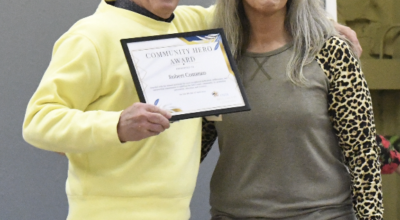School choice advocates want state Supreme Court to overturn ruling
Published 8:00 am Saturday, June 25, 2022
A Kentucky organization that promotes school choice initiatives filed an amicus brief with the state’s Supreme Court recently.
EdChoice Kentucky called for the justices to overturn a Franklin Circuit Court ruling that found an educational funding program established by 2021 state law to be unconstitutional.
The group’s brief, filed with assistance from attorneys and students at the Notre Dame Law School Religious Liberty Clinic, supports an appeal filed by Akia McNeary and Nancy Deaton, two Kentucky parents who support school choice initiatives.
The GOP-led Kentucky General Assembly passed a law over Democratic Gov. Andy Beshear’s veto last year that established education opportunity accounts for eligible Kentucky families. Under the law, individuals and businesses could give money to account-granting organizations and receive tax credits for their contributions.
The law capped tax credits at $25 million annually for five years.
Families eligible to receive accounts could use the money to pay for various educational needs. That included tuition for out-of-district public schools, and families in counties with populations of 90,000 or more could use the accounts to cover private school costs.
The Council for Better Education, the Frankfort Independent and Warren County school boards and parents Michelle Grimes Jones, Katherine Walker-Payne and Chris Rasheed filed a lawsuit a year ago to block the law claiming it was unconstitutional.
In October 2021, Franklin Circuit Judge Phillip Shepherd ruled the program would need approval from Kentucky voters since it uses tax dollars. He also found the private school restriction unconstitutional since it was limited to certain counties.
After Shepherd made his ruling, Republican Kentucky Attorney General Daniel Cameron called for the case to go directly to the state Supreme Court and bypass the Court of Appeals.
In a statement, EdChoice Kentucky President Andrew Vandiver said the EOA program would fill a “long overdue” need in the state.
“Non-public schools provide millions in financial aid to students, but a significant amount of need remains,” Vandiver said. “In too many instances, families must forgo the chance to attend a non-public school that would best serve their child’s needs. These unmet needs are exactly what the EOA Act aims to fulfill.”
Lawyers for McNeary and Deaton filed their appeal brief with the Supreme Court on May 31.
Briefs from appellees are due by Aug. 1.






